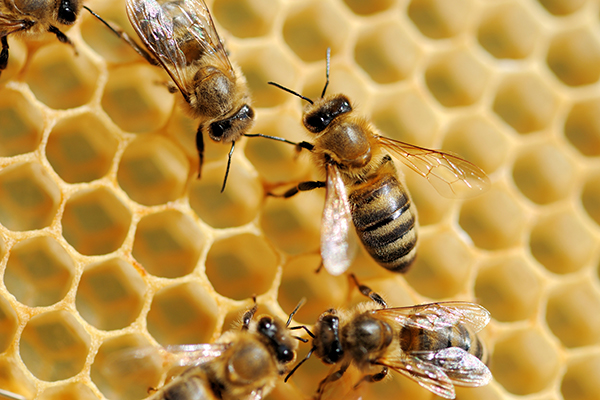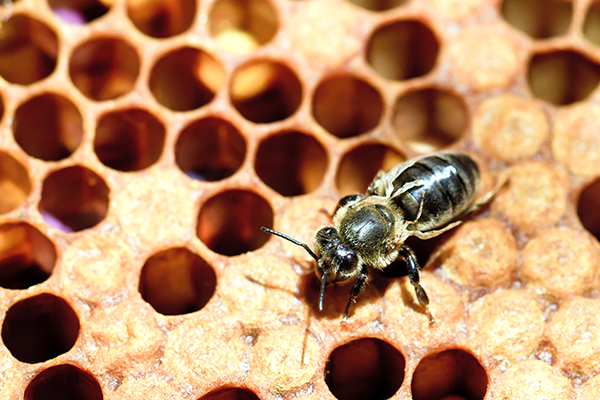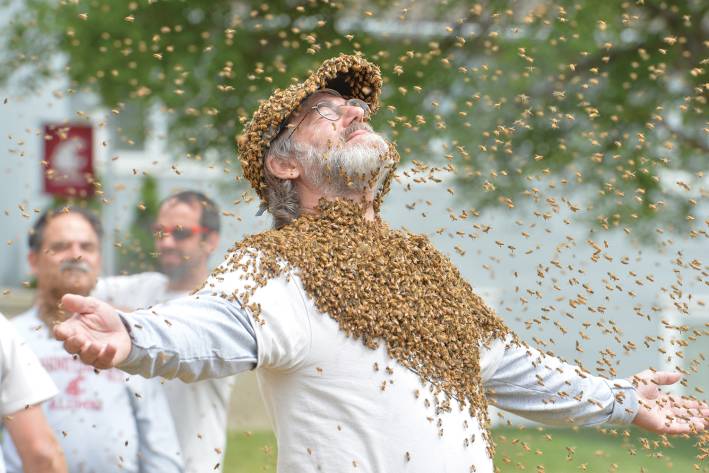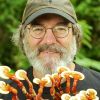Why “Bee” Concerned?
One out of three bites of food you eat requires pollination by honey bees. Since the initial detection of Colony Collapse Disorder (CCD) in 2006, honey bee keepers have been losing roughly 30% of their hives annually.
Although CCD is not fully understood, it appears to be a destructive synergism of multiple drivers of collapse. These include but are not limited to pesticides, parasitic mites, and increased viral levels.
Deformed Wing Virus
Deformed Wing Virus (DWV) is largely impacting honey, bumble-, and wild bee populations. DWV causes shriveled wings, reduced worker life span, reduced foraging, and immunosuppression in honey bees.

A hive of healthy honeybees.

A honeybee with Deformed Wing Virus.
What Is Host Defense Doing?
In 2014, Paul Stamets, D.Sc., award-winning mycologist (the study of mushrooms) and founder of Host Defense, teamed up with Dr. Steve Sheppard, Chair of the Department of Entomology at Washington State University.
In 2015, experiments began where honey bees drank different mushroom mycelium extracts. Some mycelium extracts of polypore mushrooms (Reishi and Amadou) have been shown to confer an immune benefit to bees.
“As an entomologist with 40-plus years of experience studying bees, I am unaware of any reports of materials that extend the life of worker bees more than this,” said Dr. Sheppard.
Where Is Host Defense Today?
As a result of our Give Bees a Chance program, Host Defense has directly contributed over $150,000 to fund bee research, specifically studying how mushroom mycelium extracts can help bees overcome CCD. In addition to cash contributions, we have also donated countless research hours and materials (liquid extracts) to the research efforts.
In total, awareness efforts stemming from Paul Stamets, Fungi Perfecti, and the Host Defense supplement line have accumulatively resulted in nearly $5 million in funding for the Honey Bee & Pollinator Division at Washington State University.
How Can You Help Bees?
- Buy products that are bee friendly, organic, and give back to important research!
- Eat local and organic.
- Avoid using chemicals like pesticides in your yard and garden.
- Plant wildflowers and herbs.
- Create a mushroom-friendly biosphere in your yard.
- Donate directly to organizations like Washington State University’s Honey Bee Lab!
- Find out more by visiting BeeFriendlyInitiative.org.





